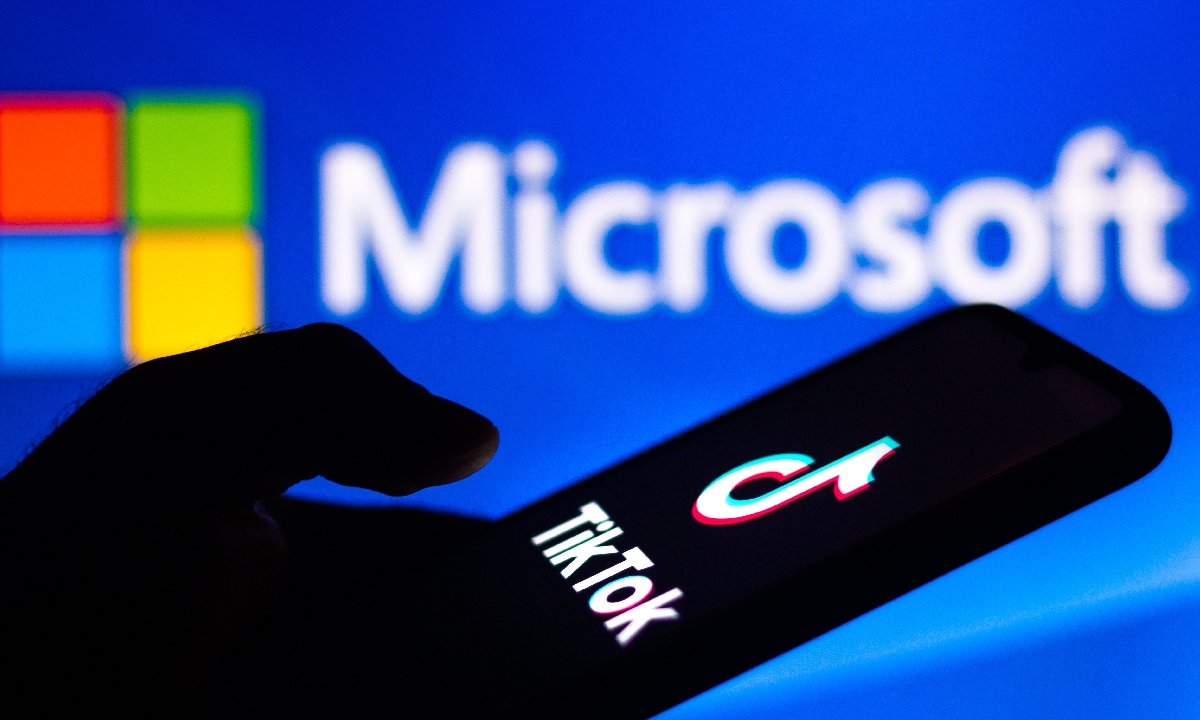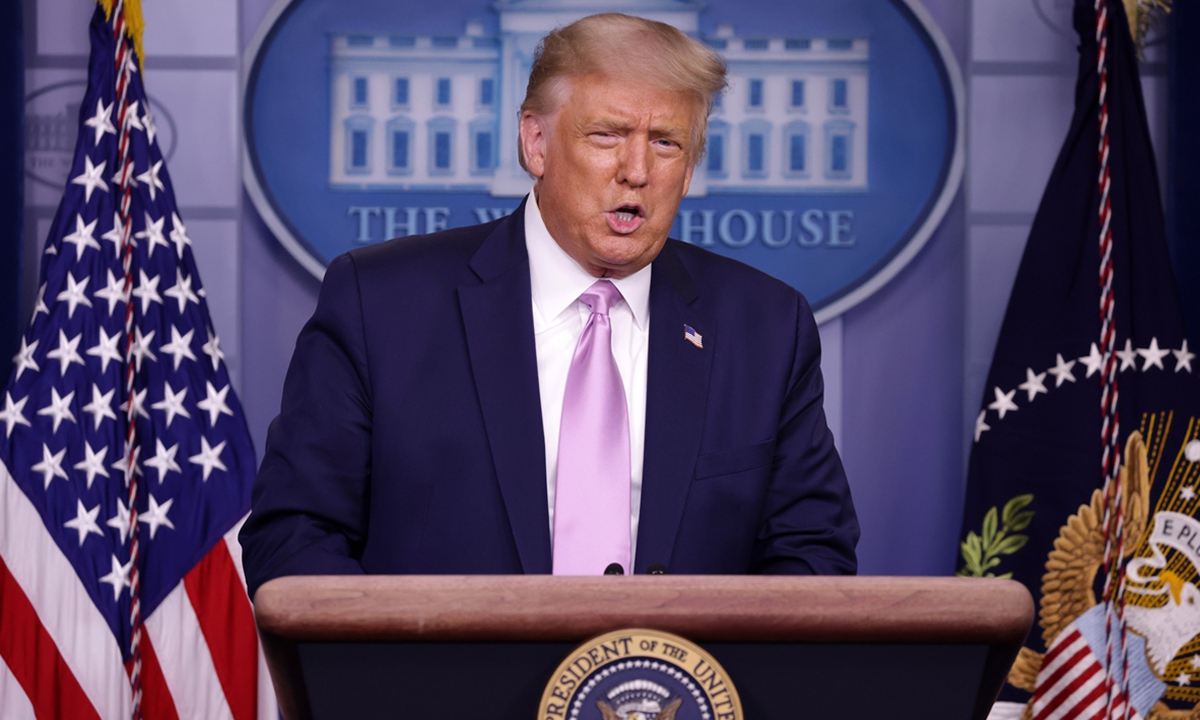Microsoft ‘hacking’ claims show loyalty to Trump for TikTok buyout: expert
By GT staff reporters Source: Global Times Published: 2020/9/11 16:21:30
Microsoft ‘hacking’ claims intended for smooth TikTok deal

Photo: CFP
Microsoft's warning on hacking from several countries, including China, cannot hold water, and the US firm's kowtowing to the Trump administration is intended to facilitate its buyout of TikTok, Chinese officials and experts said Friday.
The comments follow a release by Microsoft on Thursday that claimed hackers with so-called "ties" to Russia, China and Iran have been attempting to target people and groups associated with the US 2020 presidential election, including attacking those with links to both the Trump and Biden campaigns.
According to Microsoft, Zirconium, operating from China, has attacked some high-profile individuals with connections to the US election, including those associated with Joe Biden for President campaign as well as other prominent leaders in the international affairs community.
It also mentioned two other "hacking groups" by the names of Strontium, allegedly operating from Russia, and Phosphorus from Iran.
Microsoft should not make things up, and should not use China as a card, Zhao Lijian, spokesperson of the Chinese Foreign Ministry, told a regular briefing on Friday.
"We have no interest and intention to interfere in the US presidential election. Many US intelligence officials recently told US media that US intelligence agencies have not seen evidence of China's interference in the election," said Zhao.
"China would never do anything to target the US presidential election," Shen Yi, a professor at the School of International Relations and Public Affairs of Fudan University told the Global Times on Friday.

US President Donald Trump Photo: AFP
Shen pointed out that Microsoft's statement intends to show the firm's loyalty to Trump. It hopes that by creating a "favorable" atmosphere for the upcoming election, its buyout of the Chinese video sharing app TikTok would become smooth under the Trump administration, which has cracked down on the Chinese app citing so-called national security reasons.
Trump said Thursday he will not extend the September 20 deadline he set for ByteDance, the Chinese owner of Tiktok, to sell the popular app or have it be banned, according to US media reports.
From the US government's "Clean Networks" program to its firm's hacker warning of "undermining" its presidential election, the US has been constantly looking to add pressure on China; however, such accusations are based on false pretenses that fail to address real cyberspace threats, since cyber security requires joint efforts by the whole international community, analysts said.
"Where the 'hacking group' works and maintains its business operations cannot be used to jump to conclusions such as saying the group has 'national power' behind it," An Jincheng, research associate of the Cybersecurity Association of China, told the Global Times on Friday.
Microsoft's warning seems to suggest that the hacking group in China has some level of connection with the country's government or maybe corporations, aiming to intervene in the US' election activities, however, these claims "lack evidence and do not make sense," said An.
Amid the US' crucial presidential election period, it would be in the best interests of the US to join the international community to collaborate and address cyber security issues, instead of accusing other countries without solid evidence, An noted.
China is one of the world's largest victims of cyber-attacks from other countries including the US. On the other hand, the US has continuously suffered from telecom espionage, Chinese officials said.
Chinese cybersecurity firm Qihoo 360 released a report earlier this year revealing a massive and sustained cyber espionage program operated by the Central Intelligence Agency (CIA) against China.
Newspaper headline: Microsoft ‘hacking’ claims intended for smooth TikTok deal
Posted in: COMPANIES